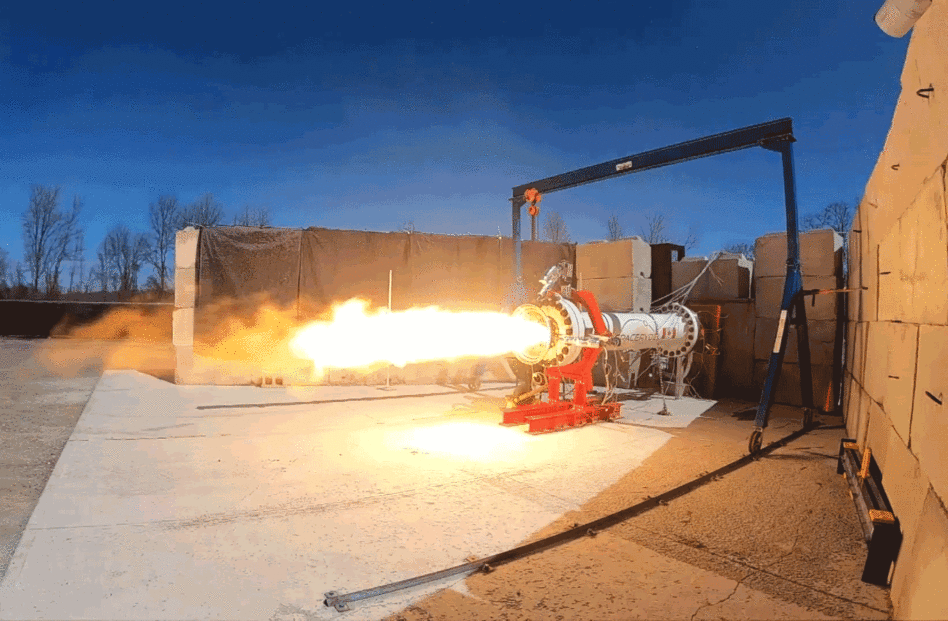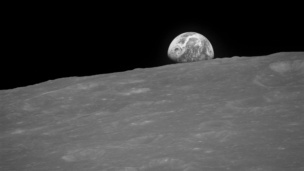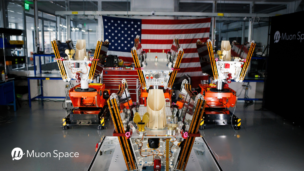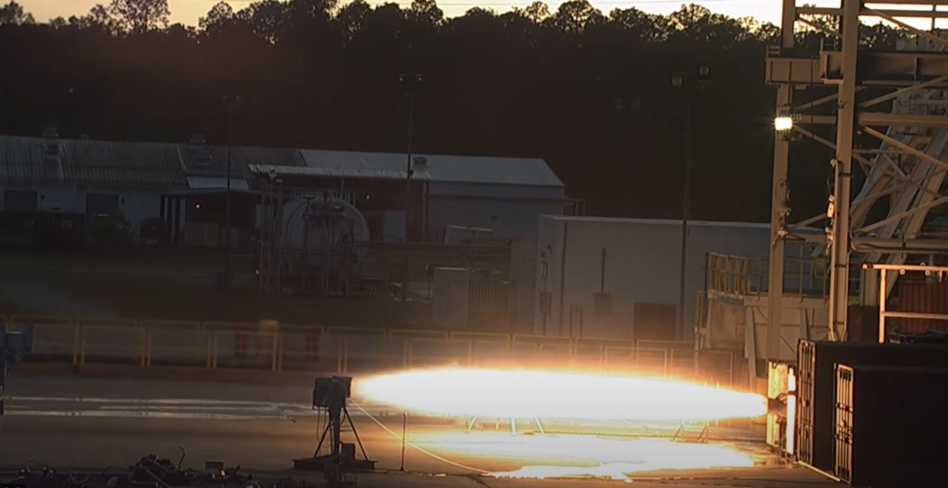Canadian launch startup SpaceRyde has conducted a test fire of what it says is the world’s first gimbaling hybrid rocket engine.
The Toronto company is building what it hopes will be Canada’s first orbital rocket. How the system works: A balloon will bring the small-lift rocket above 99% of the atmosphere, where the latter will then fire up its engines and attempt to launch to orbit, SpaceRyde CEO Sohrab Haghighat told Payload. The full rocket will be vacuum-optimized due to the thinness of the atmosphere at launch altitude.
Gimbaling engine? The engine that SpaceRyde is currently testing can be maneuvered around by its operators, generating thrust in the direction of their choosing. This, Haghighat says, allows more flexibility for customers angling to get to orbit, as it can pivot to place payloads into very specific orbits for cheaper.
- “It is important to have this control over the direction of the thrust,” said Haghighat. “This is at the moment the only hybrid engine that has such capability.”
- The engine is designed to provide 54 kilonewtons of thrust.
The gimbaling engine also saves the rocket developer from having to add mass in additional thrusters. “The technology that we have developed is basically an integral part of the engine,” said Haghighat. “It’s not going to add to the weight of it, and that allows it to offer the target price point that we had without significantly affecting the performance of the rocket.”
The price point: The cost per launch will be $250,000 up to 25kg, then $10,000 per kg over that up to a price cap of $1M per launch. The rocket will have a maximum payload capacity of 150kg.
Up next: The startup still has more tests to complete and components to build before it’s ready to bring its balloon-launched rocket to market. SpaceRyde operates its own factory and test facility, which allows it to iterate quickly and test components as many times as needed. The company is aiming to begin commercial operations in 2023.





